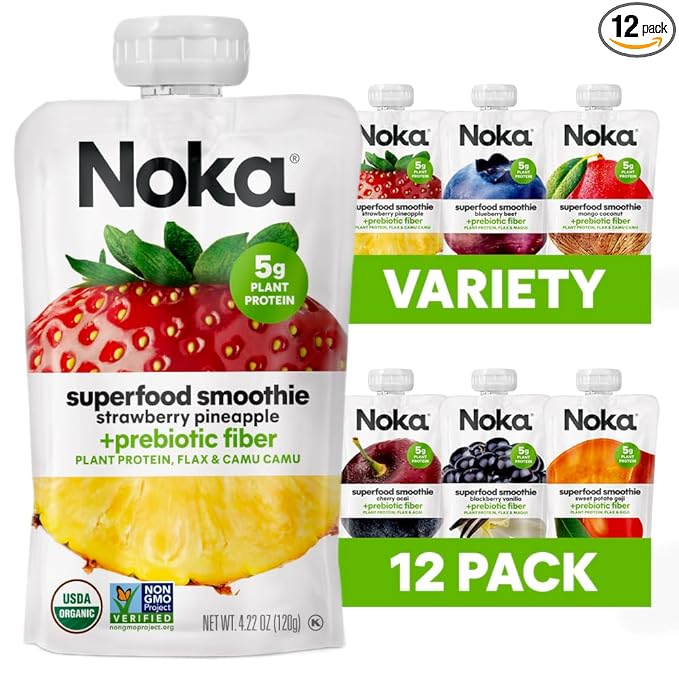Introduction
Maintaining a healthy diet is essential for a long and healthy life. One of the key components of a healthy diet is consuming low-calorie foods. These are foods that are low in calories but still provide the necessary nutrients that our bodies need.
Low-calorie foods have become increasingly popular in recent years, as more and more people are looking for ways to improve their health and maintain a healthy weight. In this article, we will define low-calorie foods and discuss the importance of consuming them. We will also provide an overview of the many benefits that come with incorporating low-calorie foods into your diet.

Weight loss
One of the primary benefits of consuming low-calorie foods is weight loss. Low-calorie foods can aid in weight loss by reducing overall caloric intake, as well as providing essential nutrients that can help the body function optimally.
Low-calorie foods are typically high in fiber, which can help you feel full and satiated, leading to a reduced desire to snack or overeat. Additionally, low-calorie foods are often lower in sugar and fat, which are both contributors to weight gain.
Try swapping out high-calorie snacks with fruits and vegetables, and choose lean protein sources for your meals. You can also use low-calorie foods as the base of your meals, such as a salad with leafy greens and vegetables topped with grilled chicken.
Remember to consult with a healthcare professional before starting any weight loss plan to ensure that it is safe and appropriate for your individual needs.

Improved digestion
Low-calorie foods can also aid in improved digestion. These foods are typically high in fiber, which can help promote regular bowel movements and prevent constipation. Additionally, many low-calorie foods contain probiotics, which are beneficial bacteria that can help promote a healthy gut microbiome.
Try swapping out processed snacks for fruits and vegetables, and choose whole grains instead of refined grains. You can also incorporate probiotic-rich foods into your diet, such as yogurt or kefir.
It's important to note that sudden changes in diet can sometimes cause digestive discomfort. If you experience any digestive issues while incorporating more low-calorie foods into your diet, be sure to speak with a healthcare professional to ensure that your new diet is appropriate for your individual needs.

Reduced risk of chronic diseases
Consuming a diet high in low-calorie foods has been shown to reduce the risk of chronic diseases such as diabetes, heart disease, and cancer. This is because low-calorie foods are typically high in vitamins, minerals, and antioxidants that are essential for maintaining good health.
Try adding berries to your morning smoothie, snacking on nuts throughout the day, and choosing whole grains instead of refined grains. You can also incorporate fatty fish into your diet by grilling or baking it for a healthy and delicious meal.
Remember that while consuming low-calorie foods can reduce the risk of chronic diseases, it's important to maintain a balanced and varied diet to ensure that you are getting all the essential nutrients that your body needs.

Increased energy levels
Consuming a diet high in low-calorie foods can help increase energy levels. These foods are typically high in complex carbohydrates, which provide a steady release of energy throughout the day, as well as vitamins and minerals that are essential for maintaining good health.
Here are some examples of low-calorie foods that can increase energy levels:
- Whole grains, like earthy-colored rice and quinoa
- Fruits, such as bananas and apples
- Vegetables, such as sweet potatoes and broccoli
- Lean proteins, such as chicken and fish
- Legumes, such as lentils and beans
It's important to note that consuming low-calorie foods alone may not be enough to increase energy levels if you are not getting enough sleep or if you are experiencing other health issues. If you are feeling consistently fatigued, be sure to speak with a healthcare professional to determine the underlying cause.

Improved mental health
Consuming a diet high in low-calorie foods has been shown to improve mental health. These foods are typically high in nutrients that are essential for brain function, such as vitamins, minerals, and omega-3 fatty acids.
Here are some examples of low-calorie foods that can improve mental health:
- Leafy greens, like spinach and kale, are high in folate, a supplement that has been connected to further developed temperament
- Fatty fish, such as salmon and tuna, which are high in omega-3 fatty acids have been linked to reduced symptoms of depression
- Berries, such as blueberries and strawberries, are high in antioxidants that have been linked to improved cognitive function
Remember that while consuming low-calorie foods can improve mental health, it's important to also practice other healthy habits such as getting enough sleep and exercise, managing stress levels, and seeking professional help if needed.

Better skin health
Consuming a diet high in low-calorie foods can also lead to better skin health. These foods are typically high in nutrients that are essential for healthy skin, such as vitamins A and C, and antioxidants that protect against skin damage.
Here are some examples of low-calorie foods that can improve skin health:
- Citrus fruits, such as oranges and lemons, are high in vitamin C promotes collagen production, and protects against sun damage
- Leafy greens, such as spinach and kale, which are high in vitamin A promotes healthy skin cell turnover
- Tomatoes, which are high in lycopene, an antioxidant that protects against sun damage
- Nuts, such as almonds and cashews, are high in vitamin E protects against skin damage and aging
Remember that while consuming low-calorie foods can improve skin health, it's important to also practice other healthy habits such as wearing sunscreen, staying hydrated, and avoiding smoking and excessive alcohol consumption.

Boosted immune system
Low-calorie foods are also known to boost the immune system, which is especially important in today's world where people are increasingly concerned about staying healthy and avoiding illnesses.
Here are some examples of low-calorie foods that can boost the immune system:
- Citrus fruits, such as oranges and lemons, are high in vitamin C which helps to fight off infections
- Leafy greens, such as spinach and kale, which are high in vitamins A and C have been linked to improved immune function
- Garlic, which is high in allicin, a compound that has been shown to have immune-boosting properties
- Yogurt, which is high in probiotics that help to support a healthy gut microbiome and immune function
- Almonds, which are high in vitamin E and other antioxidants that have been linked to improved immune function
Keep in mind that consuming low-calorie foods alone won't completely protect you from illness, but it can certainly help to support a healthy immune system when combined with other healthy habits such as getting enough sleep and exercise, managing stress levels, and practicing good hygiene.

Better heart health
Heart disease is one of the main sources of death around the world. Consuming a diet high in low-calorie foods can help to improve heart health by reducing risk factors such as high blood pressure, high cholesterol, and inflammation.
Here are some examples of low-calorie foods that can help to improve heart health:
- Whole grains, like earthy-colored rice and quinoa. which are high in fiber can help to lower cholesterol levels
- Fruits and vegetables, which are high in antioxidants and fiber can help to reduce inflammation and lower blood pressure
- Nuts, such as almonds and walnuts, are high in healthy fats that can help to lower cholesterol levels
It's important to note that while consuming low-calorie foods can help to improve heart health, it's also important to maintain a healthy weight, limit sodium, and processed foods, and engage in regular physical activity to further reduce the risk of heart disease.

Improved bone health
Low-calorie foods can improve bone health by providing essential nutrients that help to build and maintain strong bones. These nutrients include calcium, vitamin D, magnesium, and vitamin K. When these nutrients are consumed in adequate amounts, they help to increase bone density, which can reduce the risk of fractures and osteoporosis.
Some examples of low-calorie foods that improve bone health include:
- Leafy greens: Kale, collard greens, spinach, and other leafy greens are excellent sources of calcium and vitamin K, which are essential for bone health.
- Low-fat dairy products: Milk, yogurt, and cheese are all excellent sources of calcium and vitamin D, which help to strengthen bones.
- Fatty fish: Salmon, sardines, and other fatty fish are rich in vitamin D, which helps the body absorb calcium.
- Nuts and seeds: Almonds, sunflower seeds, and other nuts and seeds are high in magnesium, which is essential for bone health.
- Tofu: Tofu is a good source of calcium and magnesium, which help to maintain strong bones.
By making small changes to your diet and incorporating more low-calorie foods that improve bone health, you can help to strengthen your bones and reduce the risk of fractures and osteoporosis.

Reduced risk of diabetes
Low-calorie foods can reduce the risk of diabetes by helping to maintain healthy blood sugar levels and insulin sensitivity. When we eat foods high in calories and carbohydrates, our bodies produce more insulin to help regulate our blood sugar levels. Over time, this can lead to insulin resistance and an increased risk of developing type 2 diabetes. Low-calorie foods can help to reduce the strain on our bodies by providing important nutrients without excessive calories or carbohydrates.
Some examples of low-calorie foods that can help to reduce the risk of diabetes include:
- Non-starchy vegetables: Vegetables like leafy greens, broccoli, cauliflower, and asparagus are low in calories and carbohydrates but high in important nutrients and fiber.
- Whole grains: Whole grains like quinoa, brown rice, and whole wheat pasta are rich in fiber and other nutrients that can help to regulate blood sugar levels.
- Berries: Berries like blueberries, raspberries, and strawberries are low in calories but high in fiber and antioxidants, which can help to regulate blood sugar levels and reduce inflammation.
By making small changes to your diet and incorporating more low-calorie foods that reduce the risk of diabetes, you can help to maintain healthy blood sugar levels and reduce your risk of developing type 2 diabetes. It's also important to remember to maintain a healthy weight, exercise regularly, and avoid excessive consumption of sugary or high-calorie foods to further reduce the risk of diabetes.

Conclusion
Incorporating more low-calorie foods into your diet is a simple and effective way to improve your health and reduce your environmental impact. Some tips for incorporating more low-calorie foods include choosing whole, minimally processed foods, focusing on plant-based proteins like legumes and nuts, shopping for seasonal and locally grown produce, and reducing your meat and dairy consumption. By making small changes to your diet, you can improve your health and help to create a more sustainable food system. So why not start incorporating more low-calorie foods into your diet today? Your body and the planet will be much obliged!
FAQs
- What are low-calorie foods? Low-calorie foods are those that have a relatively low number of calories per serving. These foods tend to be high in fiber, vitamins, and minerals, and low in fat, sugar, and sodium.
- What are the benefits of eating low-calorie foods? Eating low-calorie foods can help with weight loss or weight management, as well as reducing the risk of chronic diseases like type 2 diabetes, heart disease, and some cancers. They also tend to be nutrient-dense and can provide essential vitamins and minerals that our bodies need.
- How might I integrate low-calorie food varieties into my eating regimen?
You can incorporate low-calorie foods into your diet by choosing fruits and vegetables as snacks or sides for meals, opting for lean proteins like chicken or fish, and selecting whole grains like brown rice or quinoa. You can also try swapping high-calorie foods for lower-calorie alternatives, such as using Greek yogurt instead of sour cream or swapping soda for water.






